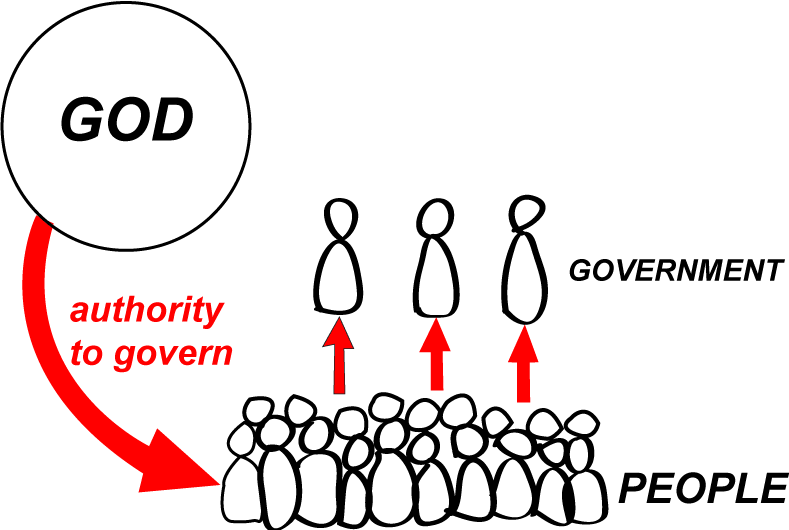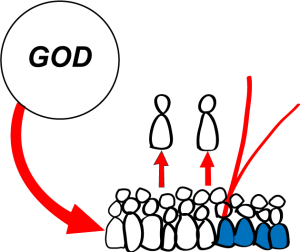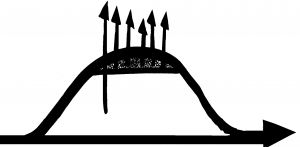GOVERNMENT 01 – APPOINTING LEADERS
Deuteronomy – Moses’ farewell speech
- Deuteronomy is Moses’ farewell speech and challenge to Israel before he dies.
- “deutero” = second, again … “onomy” = word, covenant
- Deuteronomy is Moses reminding them of their Exodus history and of the Law God gave them.
- After the Exodus generation dies in the wilderness Moses makes a covenant with the 2nd generation of Israel. Deuteronomy is this covenant document. It’s central chapter is Deu 30, Moses’ call to renew the covenant.
Need for Government, Purpose of Government - Deu 1:9, 1:12
- Quarrels and conflicts are common even without bad will, definitely with bad will.
- > a people will have justice needs and should have access to justice
- A government’s number one responsibility is to insure justice, which means to maintain lawfulness in the country
- Lawfulness means to limit the bad and let the good live in peace.
- Situation: many lining up to have their cases heard by Moses. Moses is tired. People are delayed.
- Principle: People should get justice within short time, otherwise new injustices are created, like the detention of innocent suspects or unresolved court cases.

- Muslims rightly say ‘Delayed justice is no justice.”
- But the opposite problem also exists: Speedy trials often mean no proper investigation, spur of the moment decisions and denying of the right to appeal.
- True justice process within reasonable time frames is a real challenge for any government.
Population growth triggers need for more Government - Deu 1:10-11
- God calls people a blessing … God calls population growth a blessing
- God’s command to multiply in Gen 1:28 is not cancelled but reaffirmed
- According to Exo 12:37 Israel’s number of males is 600’000 at the time. With women and children they are easily a nation of 2 Million people. God’s blessing of ‘May the LORD increase you a thousand times more!’ in Deu 1:10 would put Israel at 2 Billion as one ethnic group alone!
- God does not seem to be scared of “overpopulation”, though we are.
- But: an increase in population demands different structures, also in the area of government. Therefore:
Appointing government leaders - Deu 1:13
- Moses is retelling an event described in Exo 18:13-27 namely how they appointed government leaders right after the Exodus.
Government must be elective, by the will of the people - Deu 1:13

First question: Who appoints government officials?
- Deu 1:13 says: “you”, which means the normal people. Not God. Not Moses.
- God gives the authority to govern to the people. The people then delegate it to chosen government leaders.
- In government authority is bottom up, not top down.
- How do I know whether a government is legitimate or not? > Do people want it? If yes, it’s legitimate, if not, not.
- Authority versus power … a general doing a coup may have power (by military strength), but he has no authority to govern the country.
- How do you find out what the people want? > ask them. Give them a voice in the discussion (locally) or a vote in a national election (in case of a bigger population)
- Whether ”modern democratic ballot voting” or “tribal meet-until-consensus” doesn’t matter, but what matters that everyone has a voice.
- Another principle implied here is: one person one vote. Everybody’s vote has the same weight.
Government must be representative - Deu 1:13

2nd Question: From where do the people elect the leaders?
- Deu 1:13 says: “From each tribe.”
- By extension: from each tribe, each people, each ethnic group, each religious group, each area, each class, each professional group, each gender.
- Government must be representative.
- Why is this so important?
- If a government is representative: people’s problems are being heard and their needs are being met.
- If a government is not representative: people will be unheard, voiceless, and most likely neglected.
- They will not consider this government their own. They will instead want their own government > separatist tendencies will surface.
- God is not for one group and against the other. God demands fair treatment of the minorities by the majority, whoever they are.
- The degree of representation = degree of stability of a country.
- This is true worldwide.
- Example: Switzerland’s parliament includes MPs that are farmers, painters, small business owners and other normal professions. When the parliament is not in session > back to daily work. Also: mandatory proportional representation of the countries’ languages, areas, political parties. Parliament runs in the three national languages (no translation, everyone is required to understand the other languages). No special protection for MPs, they catch the next train like everybody else.
Government requires character & skill - Deu 1:13
3rd Question: what kind of persons should the people elect?
- Deu 1:13 says (some variations by different translations): 1 wise … 2 able, skilled, discerning … 3 reputed, experienced, known
- 2 able, skilled, discerning? That is: people who have skill, ability, intelligence, training … people who know how to do things.
- 1 wise? That is: people who know what is good and right, people who know what to do, and know to choose the good > people of character and integrity.
- 3 Reputed, experienced, known? People of good reputation, people that are well-known, well-thought-of, proven already … people whom others think a good choice.
Government requires consensus - Deu 1:14
- In Deu 1:14 God asks Israel whether they want to appoint a government by the suggested pathway.
- God has just given the authority to govern politically to humans, God himself respects their authority now and asks them for their agreement to the suggested process.
- Later in 1 Samuel 8:19-22 Israel will demand a monarchy instead. God allows them to do so, though he doesn’t agree and shows them the dangers.
- A government cannot rule unless there is a degree of consensus.
Government’s size according to need - De 1:15

- Government’s size (number of levels) is to be according to size of the people. Here it is 4 levels for a people of about 2 million people.
- Too few leaders > needed work and services won’t be ensured
- Too many leaders > expensive and usually inefficient
How far is the Bangladesh government following these principles?
Evaluate yourself:
- Elective government?
- Representative government? A political upper class that is only partially representative?
- Wise, skilled and reputed government officials?
- Consensus over the government’s rule?
- Accomplishing justice and lawfulness for the country?
